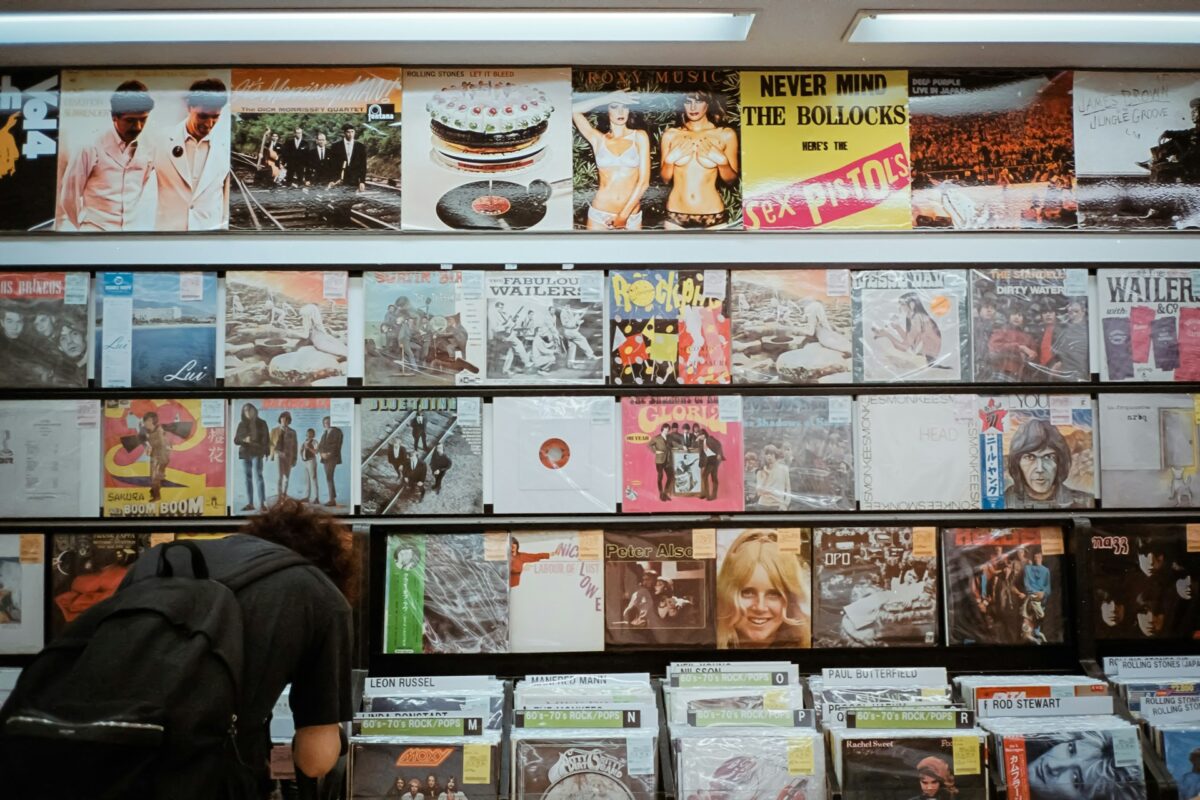When I was 16, my parents bought me my first record player (at my request). They couldn’t seem to wrap their heads around it.
“Nobody listens to records anymore,” they said. “You won’t even be able to find any.”
Six years later after I inherited my cousin’s expansive CD collection, they were similarly befuddled to learn that I did not intend to throw them away, but rather seek out a secondhand CD player.
“Nobody listens to CDs anymore,” they said. “You won’t even be able to find any.”
My parents’ assumptions, while (flagrantly) wrong, were interesting to me. Born in 1965 and 1971, respectively, my father and mother witnessed both the age of vinyl and CDs come and go. They resigned themselves to an unequivocally digital future.
People still buy vinyl and CDs, but most of them don’t look like my parents. They look like me: twenty-somethings with tote bags, scuffed Doc Martens and obscure band tees. The infamous and much-reviled Gen Z.
The Resurgence
According to a study by the Record Industry Association of America, vinyl sales rose by 29% in 2020, overtaking CDs and cassettes for the first time in decades. Between the years 2020 and 2021, sales saw a whopping 61% increase.
According to MRC Data’s midyear report for 2021, vinyl sales are only expected to keep growing, and one of the driving factors behind this is Gen Z.
While the 55+ age demographic historically takes the lead in vinyl purchases, 2021 data shows the 25-34 age demographic tying with 55+, with each composing 21% of all new sales. Younger demographics, like those 18-24, purchase 14%.
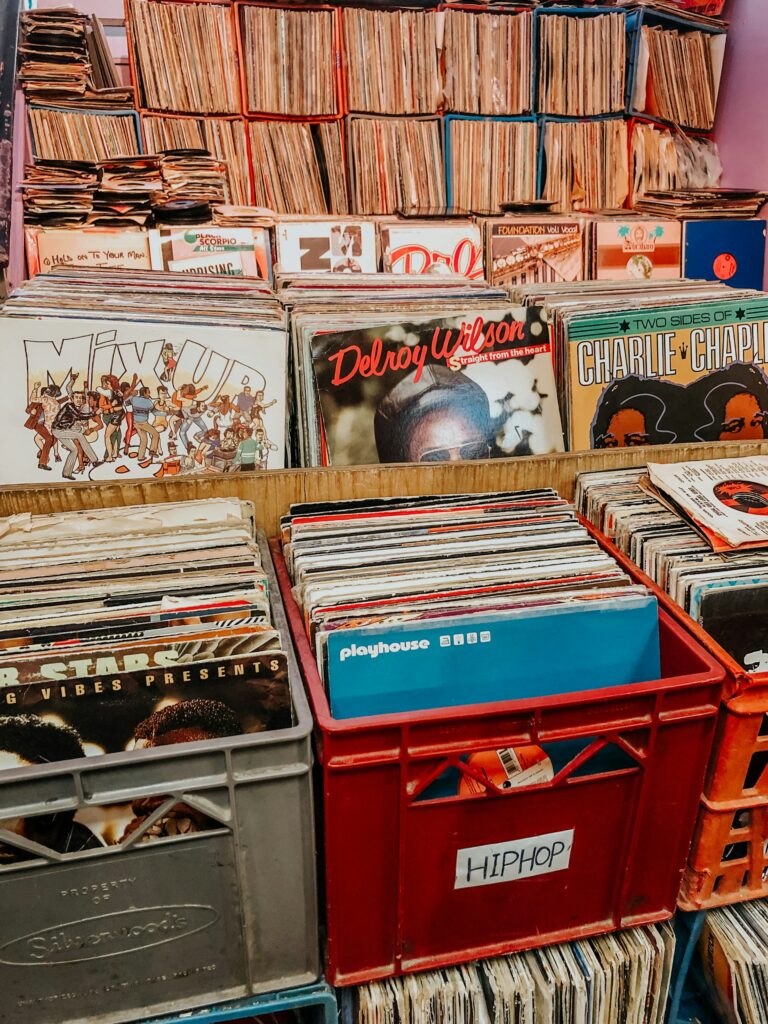
Though Gen Z has failed to take the lead in vinyl sales so far, they compose a significant margin of the market with plenty of room for growth.
While I could find a slew of statistics on Gen Z’s impact on vinyl sales, I was hard-pressed to find solid numbers on CDs.
One of the reasons for this, according to RIAA Research Director Matthew Bass, is that the RIAA can only track first sales. A lot of CDs are secondhand, and their passage from person-to-person has no traceable footprint. Therefore, while data on new CD sales demonstrates a decline, data on used CDs isn’t part of the equation.
So, What’s the Deal?
As I perused a vast selection of articles and thinkpieces, I came to realize something. Most, if not all, of what I read was written by people outside of the Gen Z demographic.
Their reasoning behind Gen Z’s affinity for physical music was purely speculation (one even said it was “y2k,” an abbreviation that still sends shivers down my spine), and therefore meant next to nothing to me. If I wanted to hear old men give me their opinions on my generation, I would just go to Facebook.
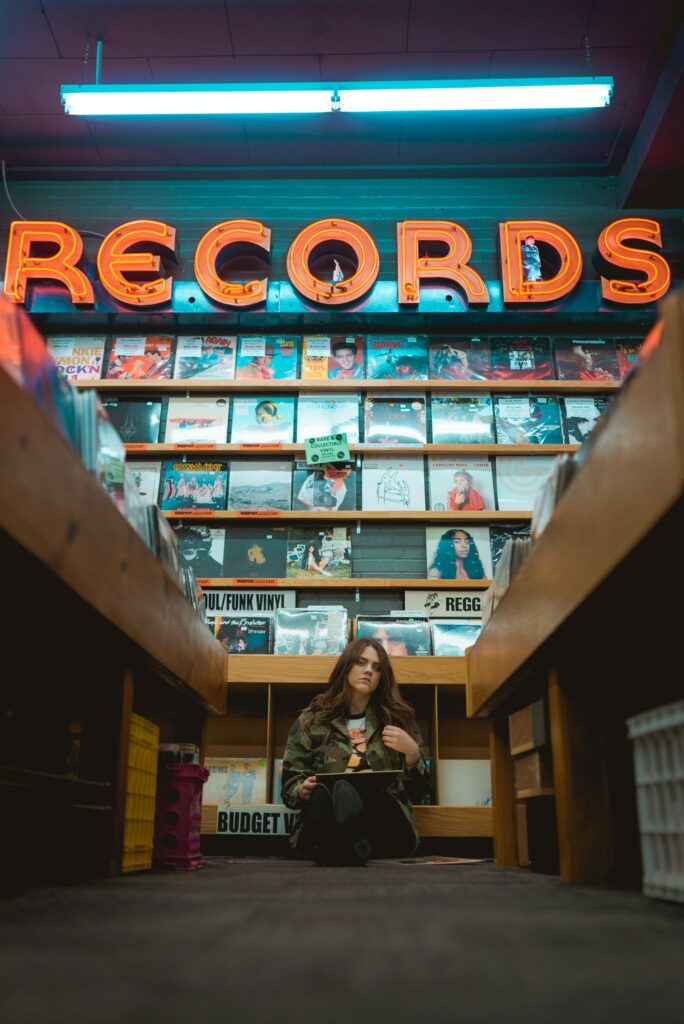
So, I reached an impasse. I certainly knew why I collected vinyl and CDs, but despite my conviction that I was one of The Music Listeners Ever, I needed a more comprehensive pool of data to draw from.
Luckily, I had a particularly large group of pathological music fanatics at my disposal, and they were more than happy to tell me their thoughts.
What’s so special about having physical copies of music?
In a world of subscription services and digital downloads, nobody truly “owns” anything. Rather, they pay monthly installments in order to prolong a temporary — and conditional — loan.
“Instead of monthly payments for as long as the site lasts,” said Chainsaw DJ Wizard of Gore, who collects both CDs and vinyl. “I can pay once for an album I love and listen to it over and over forever.”
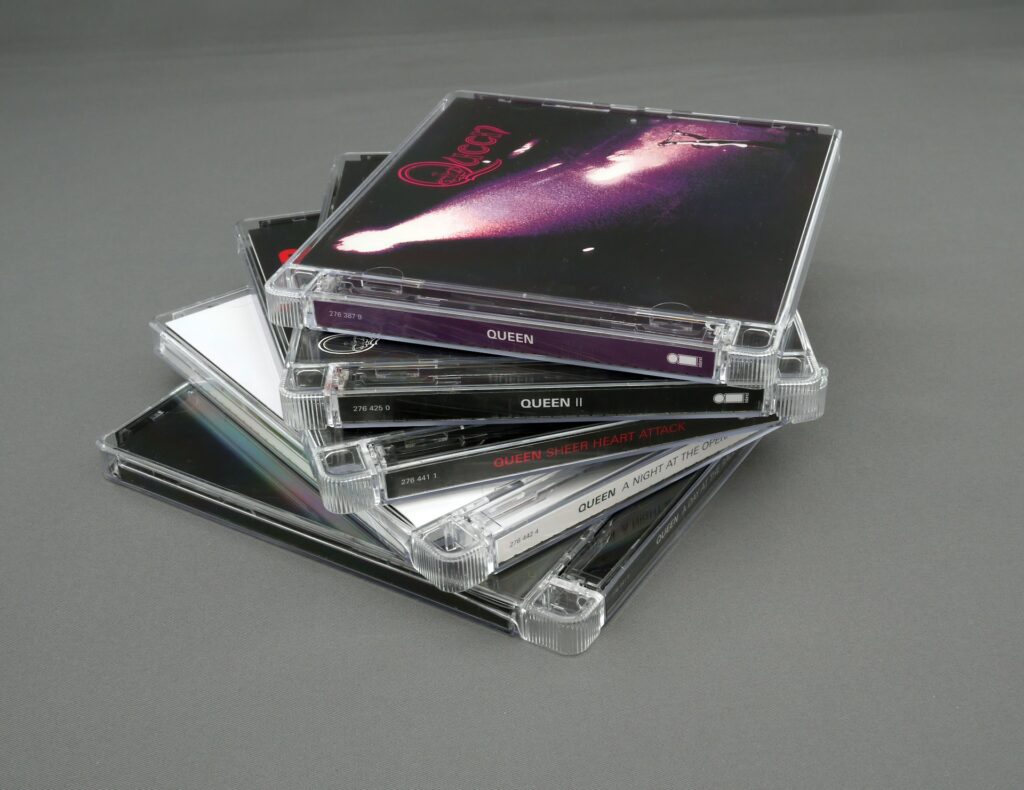
Other DJs shared a similar sentiment. DJ Bodhi, a vinyl collector, loves the “sheer mystique” of being able to hold music.
“There’s something unique about ownership in the digital world,” they said. “In many ways, it’s the last guard for so much music history.”
“In our modern era, everything feels too digitized,” said DJ Cosmonaut, a fan of vinyl and cassettes. “For me, the one thing that got me hooked on [vinyl] was being able to look at the music I was playing. I wasn’t just streaming it; I was holding the album itself in my hands.”
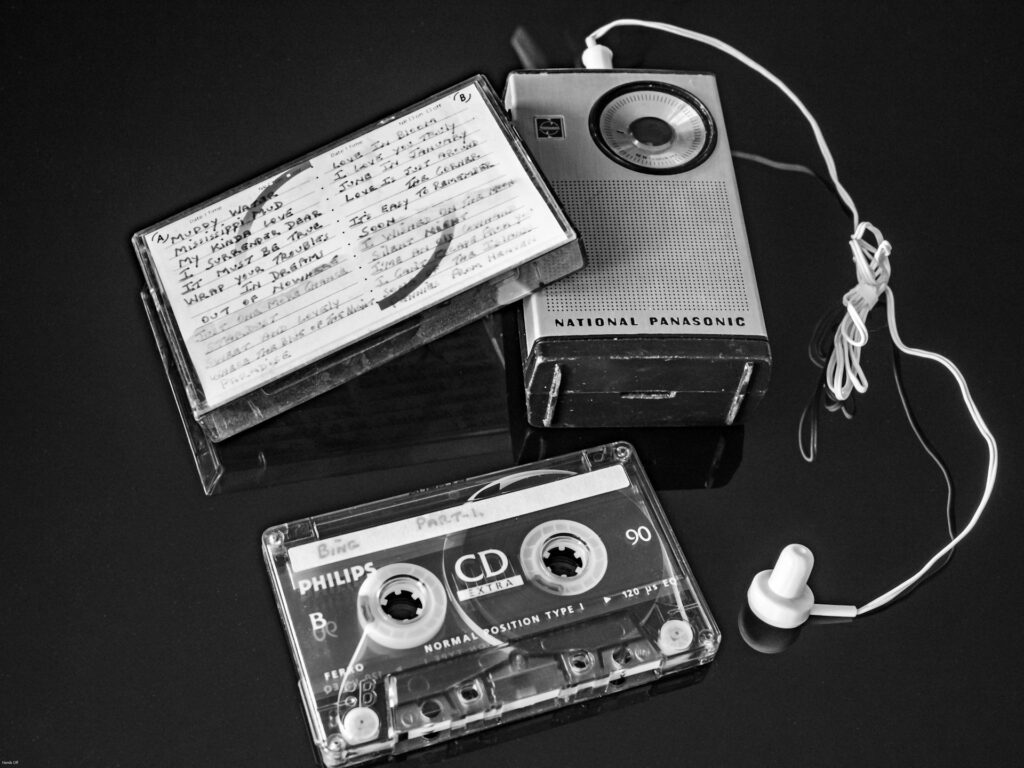
Others, such as DJ Hexane, find CDs to be a more convenient option as technological interfaces become increasingly streamlined and device-dependent.
“I have an older stereo system, so I don’t have an AUX imput or Bluetooth connection for streaming with my phone,” they said. “Plus, many phones these days are removing AUX inputs, and dongles break very easily. I enjoy being able to use my stereo system in my car with CDs.”
Apollo, who also collects CDs, had a similar perspective.
“I like CDs because it’s way easier to pick a CD out and have it play than mess around with my phone while driving,” they said, adding #safedriver.
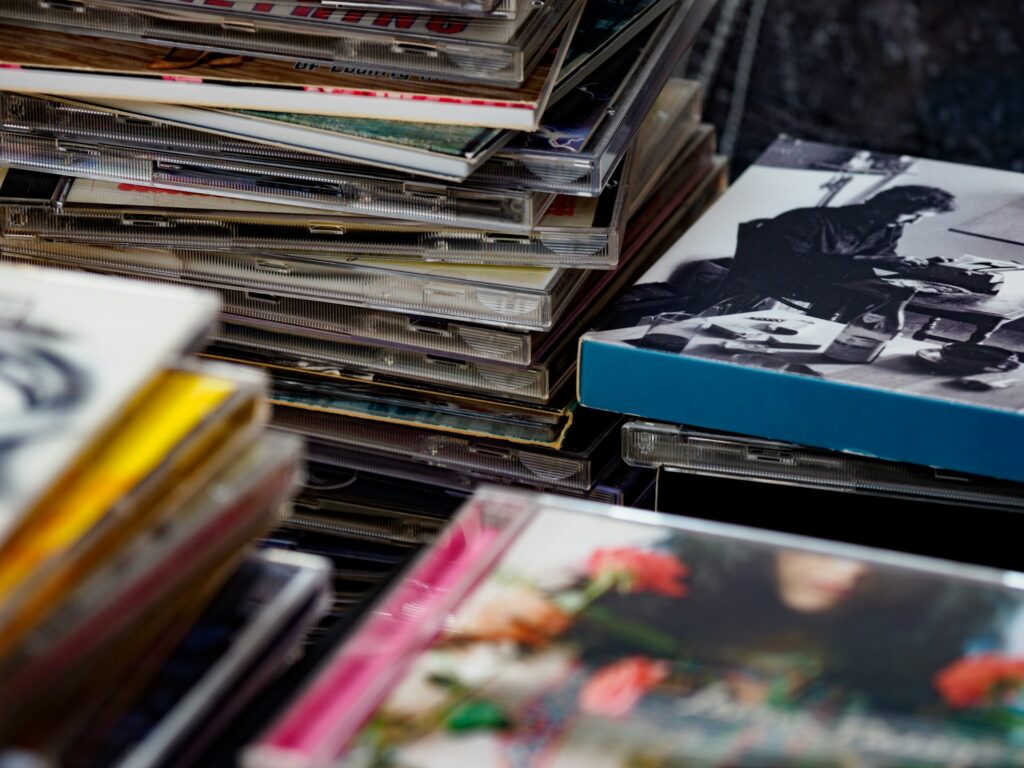
Some vinyl, said DJ Cowball, former WKNC GM, can be an investment. “A Weezer record I don’t really play anymore goes for over $100 on Discogs,” she said. “I might sell it sometime.”
Many DJs purchase CDs and vinyl in order to express their support for their favorite artists.
“Spotify is notorious for underpaying artists,” said Wordgirl, who enjoys both CDs and vinyl. “I feel like it doesn’t help the the artists I love to simply stream their music.”
CDs remain a significant source of income for musicians. Though many people discount their earning potential, they’re immensely more profitable than downloads or streams. Vinyl are similarly vital, outselling CDs by 6 million units according to 2023 data.
Conversely, artists make between $0.003-$0.005 per stream on Spotify.
Final Thoughts
While purchasing and listening to music on vinyl and CDs is generally more expensive, time-consuming and complicated (As DJ Mithrax admits, it’s certainly not preferable) than using a streaming service, these qualities are precisely what make the practice so important.
“It’s a more intentional process,” said DJ gotosleep. “Which makes the listening experience more substantial.”
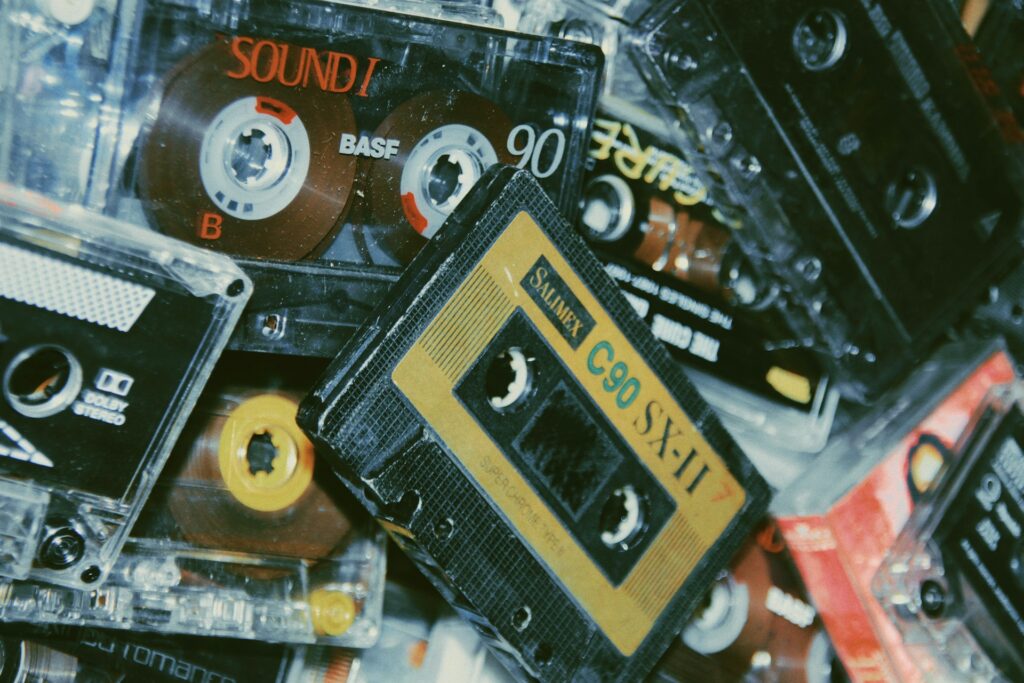
And I agree. There’s something intrinstically (perhaps even metaphysically) rewarding about seeking out, acquiring and spinning physical music. The process and the experience become divorced from the endless convenience and mindlessness of the digital sphere.
“There’s a ritual aspect to it,” said Johnny Ghost. “It’s a tactile experience.”
“I love CDs,” said DK Tullykinesis. “I love the colors, the boxes. I love when they have little pamphlets with them. I love seeing them keep spinning for a little while once I press ‘stop’ and take them out of the player.”
In a world aching for nostalgia, physical music stratches that proverbial itch. It signals to a time forever simpler and forever more romantic than the present. For Gen Z, that yearning for the past will likely never fade. We will forever be drawn to the tactile and physical as the world arround us becomes less man and more machine.

